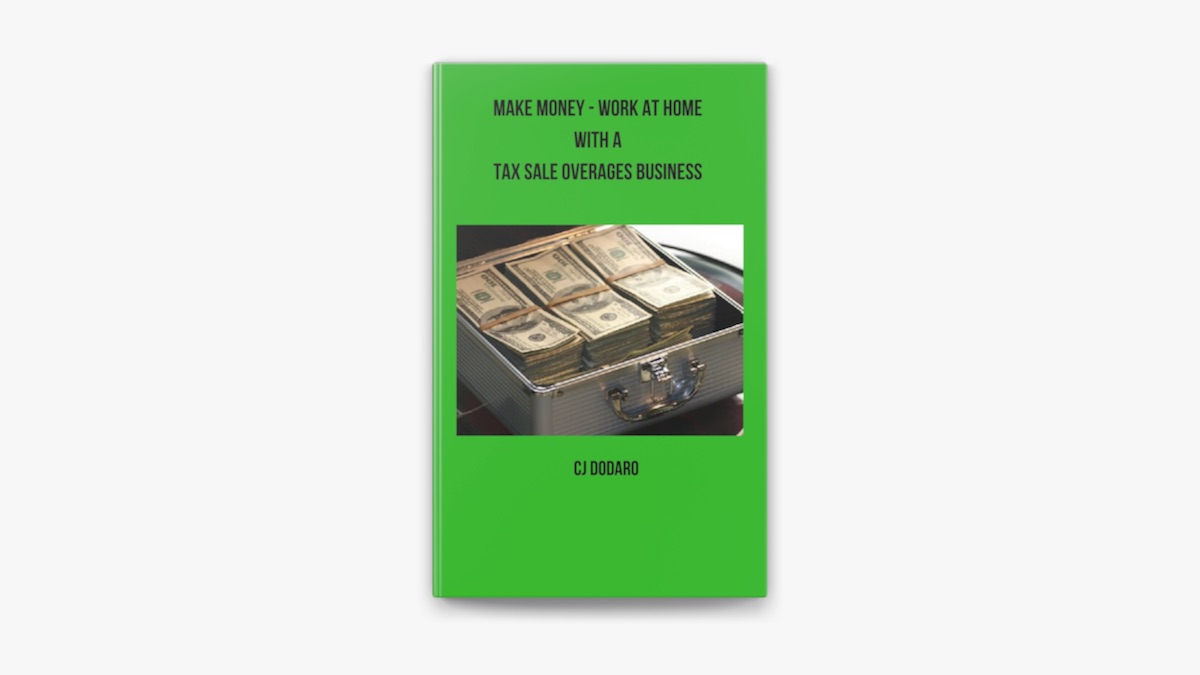All Categories
Featured
Table of Contents
Our surplus funds recovery lawyers have aided homeowner recover countless dollars in tax obligation sale excess. However the majority of those homeowners really did not also know what overages were or that they were also owed any type of surplus funds in any way. When a home owner is unable to pay residential property taxes on their home, they might lose their home in what is known as a tax sale auction or a sheriff's sale.
At a tax sale auction, residential or commercial properties are offered to the highest possible prospective buyer, however, in some instances, a residential property might sell for greater than what was owed to the region, which results in what are understood as surplus funds or tax sale excess. Tax sale excess are the additional money left over when a seized property is cost a tax sale public auction for more than the quantity of back tax obligations owed on the building.
If the home costs more than the opening bid, after that excess will certainly be produced. Nevertheless, what most property owners do not understand is that many states do not allow counties to keep this additional money for themselves. Some state statutes dictate that excess funds can only be claimed by a couple of events - consisting of the person that owed tax obligations on the residential or commercial property at the time of the sale.
If the previous homeowner owes $1,000.00 in back taxes, and the home offers for $100,000.00 at auction, then the law states that the previous homeowner is owed the difference of $99,000.00. The county does not obtain to maintain unclaimed tax obligation excess unless the funds are still not asserted after 5 years.
Respected Tax Sale Overage Recovery Blueprint Tax Auction Overages
Nonetheless, the notification will normally be mailed to the address of the property that was sold, but considering that the previous homeowner no much longer lives at that address, they frequently do not obtain this notice unless their mail was being forwarded. If you remain in this circumstance, don't let the government maintain cash that you are entitled to.

Every currently and then, I hear speak about a "secret new possibility" in business of (a.k.a, "excess profits," "overbids," "tax sale surpluses," and so on). If you're completely not familiar with this idea, I want to provide you a fast overview of what's taking place below. When a home owner quits paying their real estate tax, the regional municipality (i.e., the region) will wait for a time prior to they seize the residential property in foreclosure and sell it at their annual tax sale auction.
The info in this write-up can be impacted by several unique variables. Expect you have a residential or commercial property worth $100,000.
Specialist Tax Foreclosure Overages Training Tax Overage Recovery Strategies

At the time of repossession, you owe concerning to the county. A couple of months later, the area brings this residential property to their annual tax sale. Here, they offer your building (together with loads of other overdue buildings) to the highest bidderall to recover their shed tax profits on each parcel.
Many of the investors bidding on your home are completely mindful of this, too. In numerous cases, homes like your own will receive bids FAR beyond the amount of back tax obligations in fact owed.
Obtain this: the region only required $18,000 out of this building. The margin between the $18,000 they required and the $40,000 they obtained is recognized as "excess proceeds" (i.e., "tax obligation sales excess," "overbid," "excess," and so on). Lots of states have laws that ban the county from keeping the excess settlement for these residential or commercial properties.
The area has regulations in place where these excess proceeds can be claimed by their rightful proprietor, normally for a designated duration (which differs from state to state). If you shed your residential property to tax foreclosure because you owed taxesand if that home subsequently offered at the tax sale public auction for over this amountyou might probably go and collect the difference.
Expert How To Recover Tax Sale Overages Guide Tax Overages List
This consists of proving you were the prior proprietor, completing some documentation, and waiting for the funds to be supplied. For the ordinary person that paid complete market price for their property, this technique doesn't make much feeling. If you have a major amount of cash money spent right into a property, there's way excessive on the line to simply "let it go" on the off-chance that you can bleed some added money out of it.
With the investing approach I make use of, I could acquire residential properties free and clear for dimes on the buck. When you can buy a home for an extremely low-cost price AND you know it's worth substantially even more than you paid for it, it may really well make feeling for you to "roll the dice" and attempt to collect the excess earnings that the tax obligation repossession and auction process create.
Comprehensive Tax Overages Business Opportunities Learning County Tax Sale Overage List
While it can absolutely work out similar to the way I have actually explained it above, there are likewise a couple of downsides to the excess earnings approach you truly ought to be conscious of. Tax Deed Overages. While it depends substantially on the qualities of the residential or commercial property, it is (and in many cases, most likely) that there will be no excess proceeds created at the tax obligation sale auction
Or possibly the area does not create much public passion in their public auctions. Either method, if you're getting a home with the of letting it go to tax obligation foreclosure so you can accumulate your excess proceeds, what if that cash never comes with? Would it deserve the time and money you will have wasted when you reach this conclusion? If you're anticipating the region to "do all the job" for you, after that think what, Oftentimes, their schedule will essentially take years to pan out.
The very first time I sought this approach in my home state, I was informed that I really did not have the alternative of claiming the excess funds that were produced from the sale of my propertybecause my state didn't enable it (Real Estate Overages). In states similar to this, when they produce a tax obligation sale overage at an auction, They just maintain it! If you're considering utilizing this strategy in your organization, you'll wish to think long and difficult concerning where you're working and whether their regulations and laws will certainly also permit you to do it
Market-Leading Unclaimed Tax Sale Overages Course Tax Sale Overages
I did my best to provide the proper answer for each state over, yet I would certainly recommend that you before waging the assumption that I'm 100% appropriate. Keep in mind, I am not a lawyer or a certified public accountant and I am not trying to provide expert legal or tax obligation suggestions. Talk with your attorney or certified public accountant before you act upon this details.
Latest Posts
Tax Lien Investing
What Is Tax Lien Certificates Investing
Property Tax Lien Investing